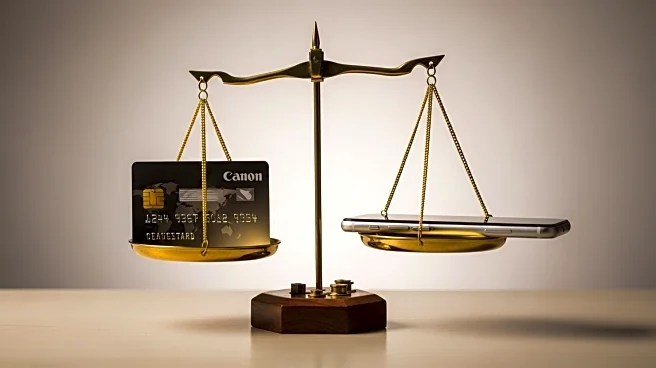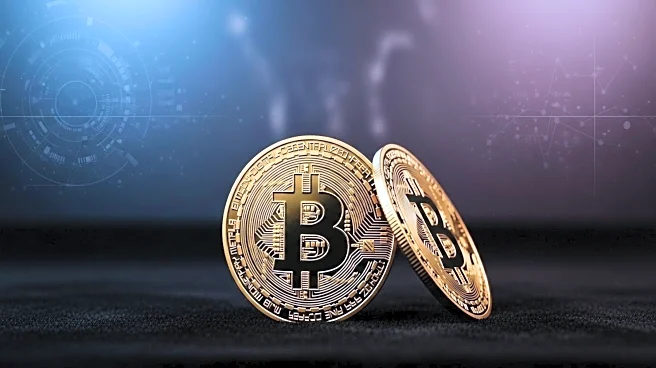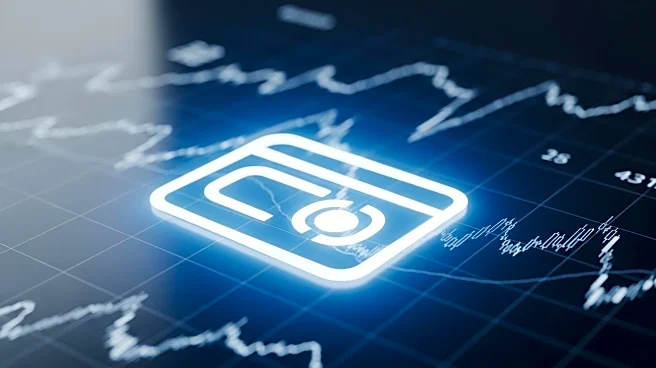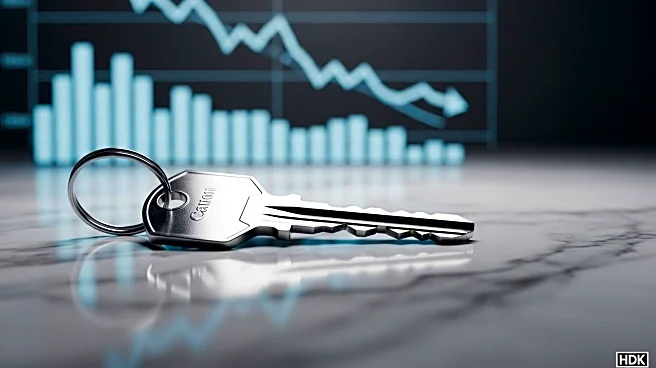What's Happening?
The popularity of buy now, pay later (BNPL) loans is rising among consumers, offering an alternative to traditional credit cards by allowing purchases to be split into interest-free installments. According to eMarketer, 86.5 million Americans used BNPL services in 2024, with projections suggesting this could increase to 91.5 million in 2025. Despite their growing use, banks and credit card companies are wary of these loans. Industry experts note that BNPL services, such as those offered by Affirm and Klarna, are appealing to consumers who either prefer not to use credit cards or lack sufficient credit. This shift poses a challenge to traditional credit card companies, as BNPL transactions reduce card usage and associated revenue.
Why It's Important?
The rise of BNPL services represents a significant shift in consumer finance, potentially disrupting the traditional credit card industry. For banks and credit card companies, the growing preference for BNPL loans could lead to decreased transaction volumes and reduced revenue from interest and fees. This trend may force traditional financial institutions to innovate and adapt their offerings to remain competitive. Additionally, the lack of comprehensive credit reporting for BNPL users poses a risk to lenders, as it creates gaps in understanding consumer credit profiles. The financial industry must address these challenges to maintain stability and meet evolving consumer demands.
Beyond the Headlines
The increasing adoption of BNPL services raises questions about consumer debt management and financial literacy. While these loans offer convenience, they may also encourage overspending and lead to financial strain if not managed properly. Regulators may need to consider implementing guidelines to ensure transparency and protect consumers from potential pitfalls associated with BNPL loans. Furthermore, the shift towards BNPL could influence broader economic patterns, affecting how consumers budget and spend, ultimately impacting retail and financial markets.











